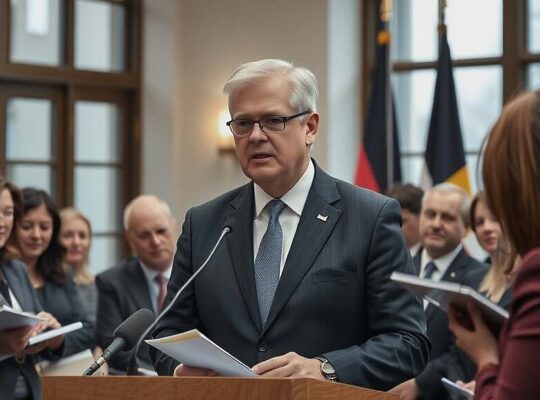The government’s persistent vacillation on the planned combustion engine phase-out is undermining Germany’s transition to electric mobility, according to Monika Schnitzer, chair of the German Council of Economic Experts. In an interview with the “Rheinische Post” Schnitzer cautioned that the continuous debate surrounding the future of internal combustion engines risks jeopardizing the sector’s progress.
Schnitzer emphasized the potential for consumer uncertainty, noting that while the German automotive industry has demonstrably advanced, showcasing internationally competitive electric vehicle models at events like the IAA Mobility, demand remains hesitant. This hesitancy, she argues, is directly linked to the political back-and-forth regarding the 2035 combustion engine ban. The constant questioning of the policy creates instability and discourages potential buyers.
The expert council chair welcomed the planned extension of tax exemptions for electric vehicles until 2035, linking it to the combustion engine phase-out as a crucial incentive. However, she stressed that affordability and accessibility of operation remain significant hurdles. Schnitzer argued that fostering competition among charging station operators, ensuring transparent pricing, eliminating mandatory app usage and implementing standardized infrastructure are paramount to encouraging wider adoption. “Charging must become as simple as refueling” she asserted, highlighting advancements in charging technology that have already significantly reduced charging times.
The existing fleet emission limits, part of the EU’s “Fit for 55” package aimed at limiting climate change to just above two degrees Celsius, are currently set at 93.6 grams of CO2 per kilometer for new vehicles. This limit is scheduled for gradual reduction to zero, effectively prohibiting the sale of new combustion engine vehicles after 2035.
The EU’s commitment, enshrined in the “Fit for 55” initiative, faces increasing scrutiny, particularly following a recent International Court of Justice ruling that suggests states could be liable for damages if they exceed the 1.5-degree Celsius warming threshold. Schnitzer’s warning underscores the fragile nature of this ambitious climate agenda and the political risks associated with deviating from a consistent, long-term strategy. Ultimately, she implies, a lack of decisive leadership threatens to not only derail Germany’s automotive innovation but also undermine broader European climate goals.












